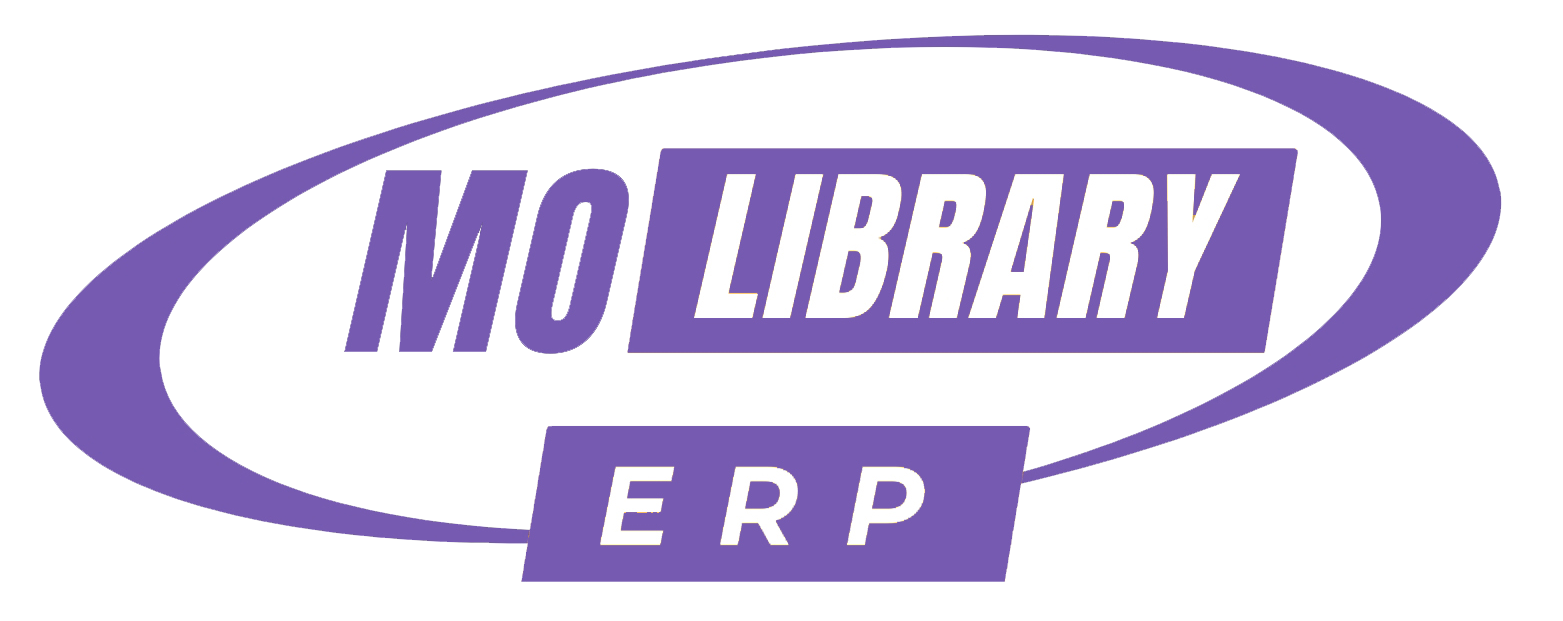About Library Management
Library management ERP In India
A Library Management ERP (Enterprise Resource Planning) system is a comprehensive software solution designed to automate and streamline the operations of libraries. It integrates various functions into a unified system to manage all library processes more efficiently, from book circulation to catalog management and user services.
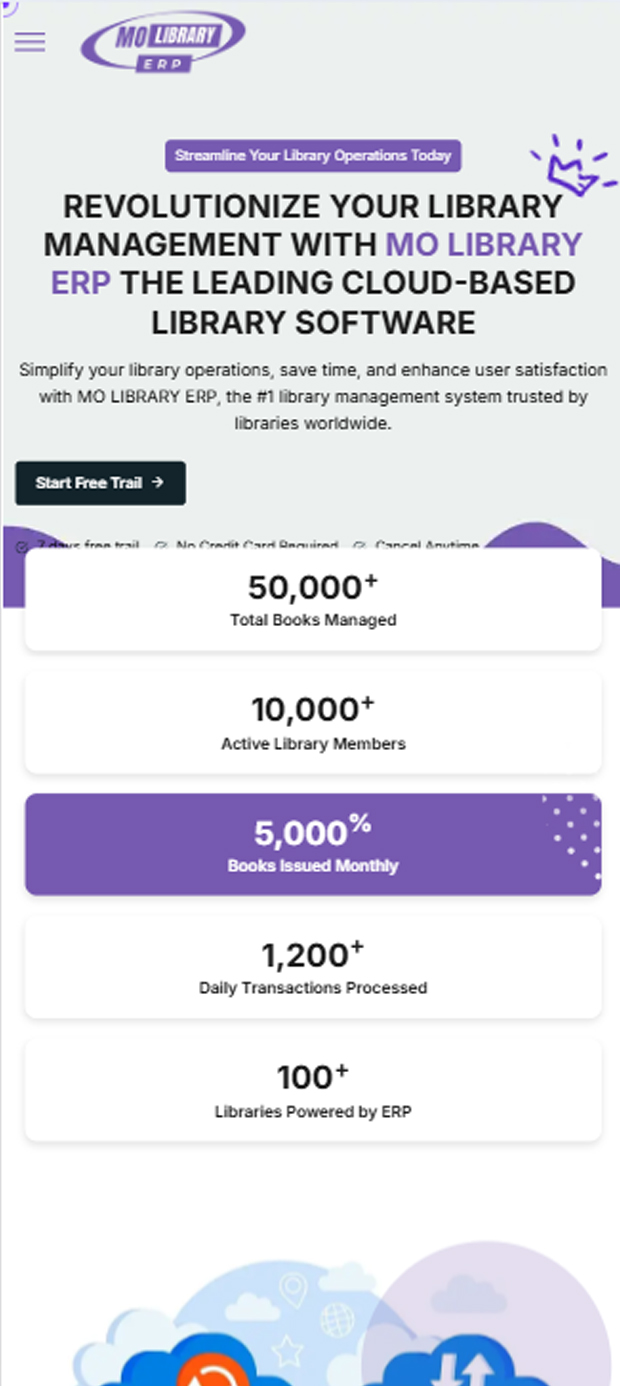
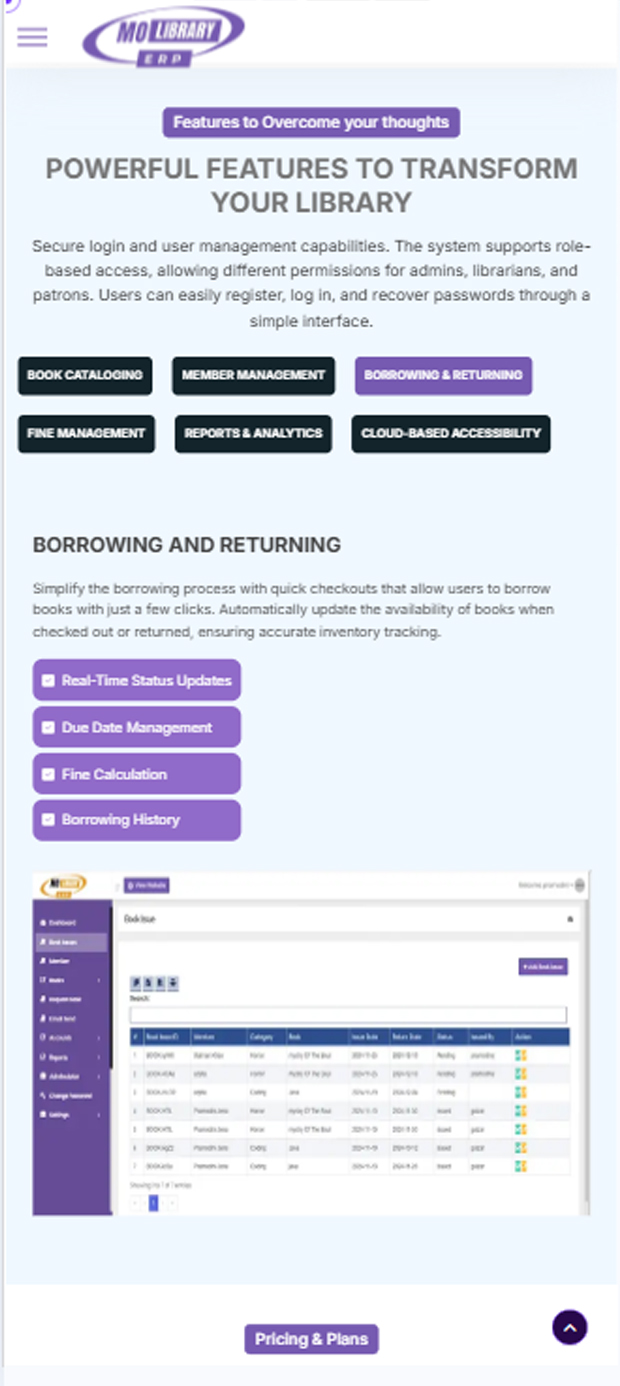
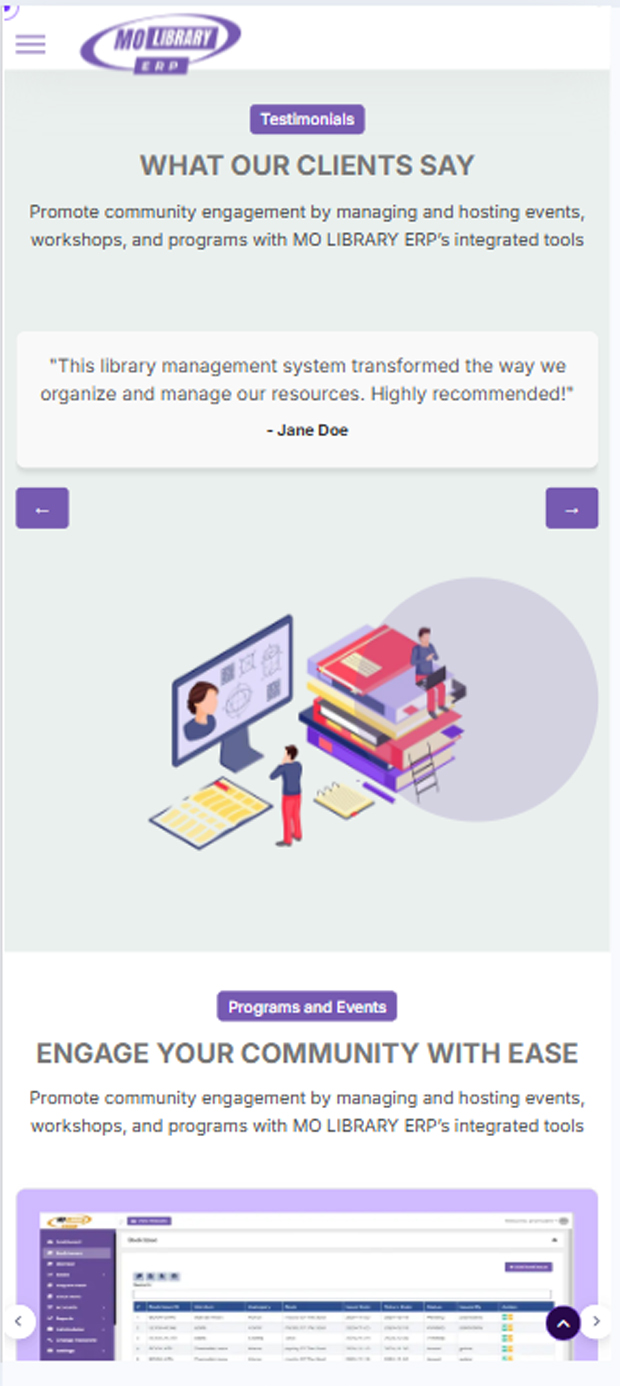
Benefits
Efficiency:
Automates routine tasks like checking out books, reducing manual work and human errors.
Accessibility:
Provides an easy way for students and staff to access resources, check availability, and request materials.
Data Security:
Centralizes data, offering secure access and backups.
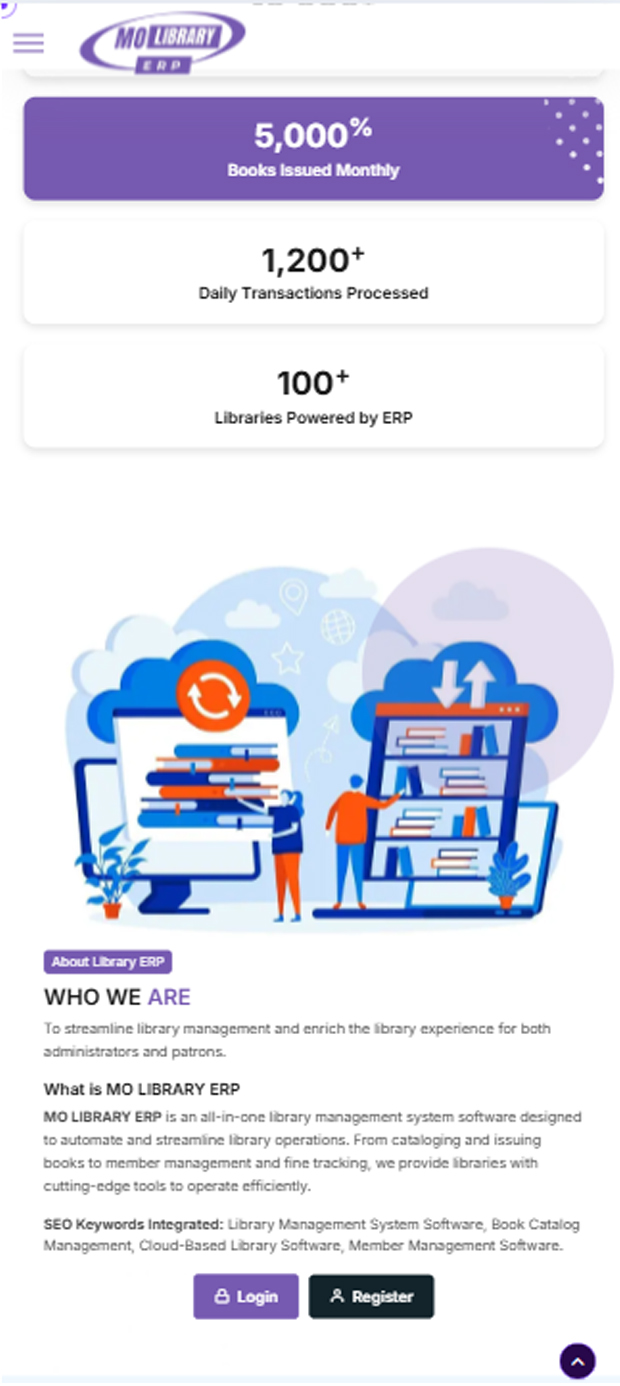
Cost-Effective:
Reduces the need for physical record-keeping and manual inventory checks.
Improved User Experience:
Simplifies the process for borrowing and returning materials and keeps members informed about library news.
Key Features of Library Management ERP:
Catalog Management:
- Organizes and manages books, journals, articles, and other resources.
- Supports detailed categorization (e.g., by title, author, genre, publisher).
- Includes an integrated search system for easy access.
User Management:
- Maintains a database of library members, including staff and students.
- Allows user registration, updating details, and categorizing members based on roles (e.g., librarian, student, faculty).
- Supports login and user authentication.
Book Circulation Management:
- Tracks the lending and return of books or other resources.
- Automates the process of checking out and checking in materials.
- Provides overdue alerts and fines for late returns.
- Supports reservations for unavailable resources.
Inventory Management:
- Keeps track of library resources, their availability, condition, and location.
- Helps in managing stock, ordering new resources, and decommissioning outdated or damaged ones.
Fee Management:
- Automates fee collection for overdue items, reservations, and membership renewals.
- Allows integration with various payment gateways for online transactions.
Reports & Analytics:
- Generates reports on user activity, book circulation, inventory status, overdue items, etc.
- Provides analytics for better decision-making and resource planning.
Barcode/RFID Integration:
- Allows for quick scanning and identification of library materials.
- Speeds up check-in/check-out processes and inventory management.
Search & Discovery:
- Implements advanced search features to find books, journals, or resources based on various criteria (e.g., title, author, ISBN).
- Integration with digital catalogs and online databases for e-books and other digital resources.
Reservation & Renewal:
- Users can reserve books, and the system will notify when they become available.
- Supports the renewal of borrowed items if not requested by another user.
E-Resource Management:
- Manages online resources, such as e-books, e-journals, and databases.
- Tracks licenses, access rights, and usage.
Notifications & Alerts:
- Sends automatic reminders for overdue books, upcoming due dates, fines, and library events.
- Can notify users about new arrivals, reservations, and library hours.
Admin & Staff Management:
- Provides role-based access control for library administrators and staff.
- Facilitates staff scheduling, attendance, and task management.
Multi-Language Support:
- Many ERP systems support different languages for greater accessibility, especially in diverse communities.
Integration with Other Systems:
- The ERP may integrate with other campus or institutional systems like Student Information Systems (SIS) or Learning Management Systems (LMS).
Common Software Used for Library Management ERP:
- Koha: An open-source library management system that offers comprehensive features and customization options.
- Libsys: A popular library automation software, used by libraries worldwide.
- Alma: A cloud-based integrated library system for larger institutions, focusing on resource management and analytics.
- Evergreen: An open-source ILS (Integrated Library System) used by public libraries and consortia.
- Follett Destiny: A popular choice for school libraries, offering a range of tools for managing resources and users.
A Library Management ERP system can drastically improve the management of resources, user engagement, and operational efficiency, ensuring a seamless and well-organized library environment.


